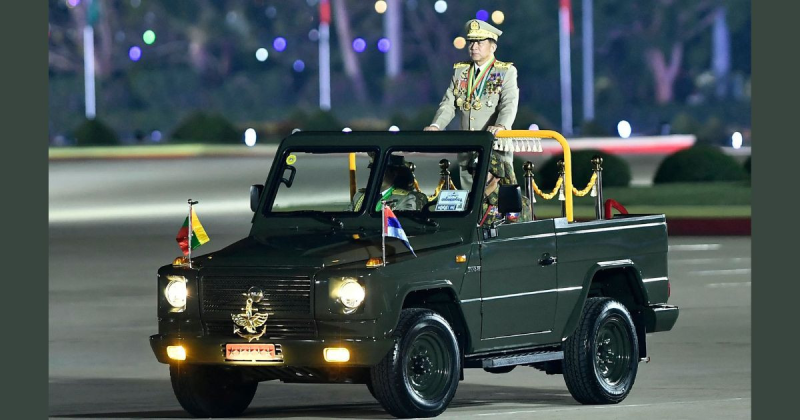- India Sees 9% Drop in Foreign Tourists as Bangladesh Visits Plunge |
- Dhaka Urges Restraint in Pakistan-Afghan War |
- Guterres Urges Action on Safe Migration Pact |
- OpenAI Raises $110B in Amazon-Led Funding |
- Puppet show enchants Children as Boi Mela comes alive on day 2 |
Myanmar Junta Lifts Emergency Ahead of Disputed December Poll

Myanmar’s military junta on Thursday lifted the state of emergency it imposed in 2021, paving the way for national elections in December—polls widely criticised as a move to cement military control rather than restore democracy.
The state of emergency was declared in February 2021 after the military ousted the elected government led by Aung San Suu Kyi, sparking a nationwide armed resistance. The order had granted junta chief Min Aung Hlaing full authority over the country’s legislative, executive, and judicial branches.
Junta spokesman Zaw Min Tun announced the end of emergency rule “to prepare for elections on the path to multi-party democracy,” adding that polls will be held within six months.
Opposition groups, including lawmakers removed during the coup, have vowed to boycott the elections, which a UN expert recently labelled a “fraud” intended to legitimise the junta’s rule. Analysts suggest that Min Aung Hlaing is positioning himself to remain in power after the vote—either as president or as military chief—ensuring his continued grip on authority.
In a series of directives, the junta formed a new “Union Government” and a “National Security and Peace Commission,” both chaired by Min Aung Hlaing, who will continue to serve as acting president.
Addressing his administration council in Naypyidaw, Min Aung Hlaing declared, “We have passed the first chapter. Now, we are starting the second chapter,” referring to the transition from military emergency to elections.
Although an exact date has not been announced, preparations for the December election are underway. Political parties are registering, and training sessions on electronic voting machines have begun. However, concerns over fairness and inclusivity remain high.
A census conducted last year in preparation for the vote failed to reach nearly 19 million people—over a third of the population—due to “significant security constraints,” casting doubt on the election's legitimacy.
In a further sign of tightened control, the junta this week introduced a new law imposing up to 10 years in prison for speech or protests seen as disrupting the electoral process.
Rebel groups, which continue to resist military rule, are expected to launch new offensives around the time of the election. In response, the junta has begun offering cash incentives to fighters who surrender and pledge to rejoin the legal system.

